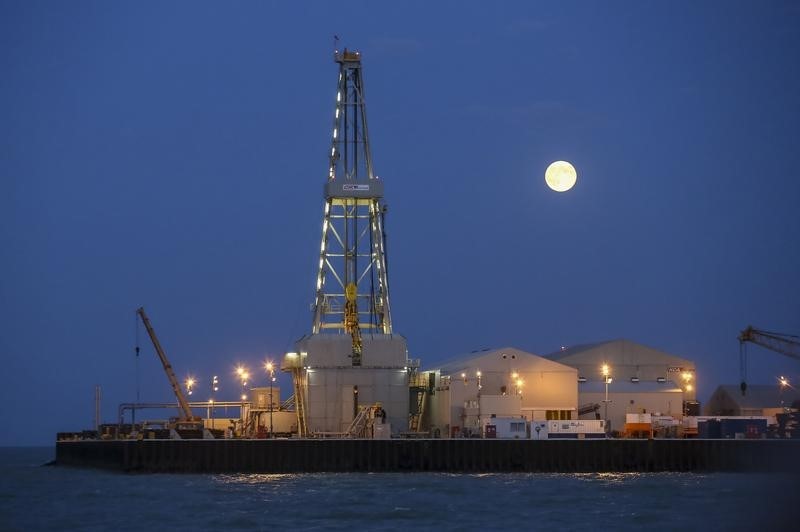Investing.com - Crude prices held gains in Asia on Monday despite a break by several Middle East and Gulf countries with Qatar as Saudi Arabia, Egypt, the UAE and Bahrain snapped diplomatic and commercial ties.
The U.S. West Texas Intermediate crude July contract rose 0.88% to $48.08, while on the ICE Futures Exchange in London, Brent oil for August delivery gained 0.92% to $50.41 a barrel.
Qatar shares the world's largest gas field, South pars, with Iran. The commercial and business ties have irritated Saudi Arabia and other GCC countries at odds with Iran on support for Shia-linked militants and recent statement attributed to Qatar's ruler on U.S. and Saudi policies toward Iran have furtehr riled the waters.
Last week, oil futures settled at the lowest level in more than three weeks on Friday, with prices suffering their largest weekly loss in a month amid growing concern over rising shale production in the U.S.
Concerns that the ongoing rebound in U.S. shale production could derail efforts by other major producers to rebalance global oil supply and demand pressured crude prices.
Data from energy services company Baker Hughes showed on Friday that U.S. drillers last week added rigs for the 20th week in a row, the longest such streak on record, implying that further gains in domestic production are ahead.
The U.S. rig count rose by 11 to 733, extending a year-long drilling recovery to the highest level since April 2015.
President Donald Trump’s controversial decision to withdraw from the 2015 Paris climate agreement on Thursday sparked additional concerns that U.S. oil production could expand rapidly in the absence of a stringent focus on curbing the use of fossil fuels.
The Paris Agreement laid out a framework for countries to adopt clean energy and phase out fossil fuels such as oil, coal and natural gas.
The increase in U.S. drilling activity and shale production has mostly offset efforts by OPEC and other producers to cut output in a move to prop up the market.
Last week OPEC and some non-OPEC producers extended a deal to cut 1.8 million barrels per day in supply until March 2018. However, the news disappointed investors who had hoped for larger cuts.
Saudi Energy Minister Khalid al-Falih said further oil output cuts could be needed in the future but that OPEC and other leading producers would assess the market situation in July, Russia's TASS news agency reported on Saturday.
So far, the production-cut agreement has had little impact on global inventory levels due to rising supply from producers not participating in the accord, such as Libya and Nigeria, and a relentless increase in U.S. shale oil output.
